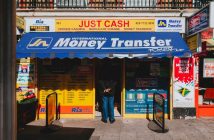A forum letter to the Straits Times highlighted a different way to measure affordability.
Based on Numbeo’s “house price to income ratio”, Singapore ranks below major cities like Tokyo, Barcelona, Milan, Dublin, Toronto, New York City, Geneva, Oslo, Rotterdam, San Francisco, Sydney, Vienna, Stockholm, Amsterdam, Zurich, Copenhagen and Berlin.
This means: if we use all our annual income to pay for our mortgages, we need more years than these other cities.
Our houses are less affordable.
Contrast the above with HDB’s explanation that our houses are very affordable:
“On average, first-time households used 21 per cent and 25 per cent of their monthly income to service their loans on new and resale HDB flats respectively in non-mature estates. These figures are well below the international affordability benchmark of 30 per cent.” (Straits Times, 31 Aug 2009)
First, note that HDB specifically refers to “non-mature” estates. Is there a special reason? What about mature estates? Do they breach the international affordability benchmark?
Next, HDB doesn’t take into account the Cash Over Valuation (COV), which is over and above the 10% minimum downpayment needed to buy a HDB flat. And we all know that COV has been rising to unaffordable levels recently.
Remember HDB’s “market-based pricing approach“? This time, is HDB trying to humour us again?




13 Comments
To be fair, the COV (only for resale) is not decided by HDB and should it be raised, its driven by the market sentiments set by buyers.
Singapore market is typically unique with public housing as one of main driving force as compared with its peers in other countries.
I kinda reckon why HDB used non-mature estate would be using the rock bottom to compare/ also because they’re developing the new estates. Again, the central or mature estates have too much differences in terms of resale value.
the uniquely singapore system here feeds into itself.
with “stable” HDB prices, which i take to mean “prices can’t fall”, cost of new flats will trend upwards or at the least stay constant.
HDB will use reasons like market-based pricing to justify this. i think the real reason is they don’t want singaporeans to feel poorer. maybe the election is coming. but in my opinion this is unhealthy.
prices of new flats will serve to support prices of resale flats. otherwise, if resale is cheaper, HDB won’t be able to sell new flats.
and with jobs protected by the artificial jobs credit scheme, flat dwellers unaffected by the recession, some even feeling richer by the day, upgraders and condo-queuers will help push up private condo prices. hence the exorbitant prices we see at amk centro and soon many others.
it is a bubble. when stronger forces of supply and demand come into play, and when the government realize it can’t continue with artificially protecting the people’s interest (and its own interest), the bubble will burst.
just my 2 cents.
The prices for Singapore’s 2nd DBSS site at Boon Keng: 99 Years HDB
3rms – $349,000 to $394,000
4rms – $523,000 to $597,000
5rms – $536,000 to $727,000
0.8 KM away, FREEHOLD condos, 3+1(size of 5 room flats) cost around 750K-850K.
What gives? =)
As interest rate is lower and take home pay as a % of income is higher (lower taxes) compared to other industrial world, it can have a higher than normal HousePricetoIncome ratio and yet a servicing cost as a % of income that is lower.
So, to determine whether HDB value are overcalued, 3 questions needs to be answered:-
(a) Is this subzero interest rates sunstainable?
(b) Can income tax remains at this level?
(c) Can the wage growth trend before the financial crisis sustained..
Bears be careful. The market can, has and will remain irrational for as long as you and many others can remain solvent, and then longer.
irrational : shouldn’t it be Bulls be careful?
After all they are the people heavily vested in the markets and playing musical chairs now.
Bears are staying out with their cash safely in their bank accounts.
What is the ideal % of your total income or combined income (if married), that should go into servicing mortgage per month? thanks in advance.
house: i’m not sure if there ever was such a thing as ideal.
Every situation is unique and it really depends on your own definition of affordable.
For example I may have only 30% disposal income from my total income and yet still think that it’s affordable to spend 50% of that disposal income for housing.
But that has totally nothing to do with what your case or anyone else’s case may be.
Also you forgot that there are other factors like the number of years of loans taken, what your future family plans are and expenses, what your income will be, plans for retirement etc.
HDB has their own affordability index but there are others out there also.
End of the day the only advice is to live within your means and decide your own.
Personally I wouldn’t want to take a 30 years loan that will demand more than 20% of my disposable income.
Sorry if it’s not much help – maybe someone else has a better answer than this.
disposible income is income left after deducting monthly “fixed” bills like cars and house what. So this mean you should calculate how much you want to devote to your mortgage from your total income + employers’ CPF contribution + bonuses. This is because you’re trying to calculate how much from your total (combined if married) earning power should the mortgage take up.
My suggestion is calculate your monthly income, multiply by 12, add bonuses, divide by 12, do the same format for your spouse’s income if married, add the two figures up, that is your monthly “spending power”, your monthly mortage should be no more than 30% of that.
I forgot, you should add in the 14.5% employers’ contribution monthly before you multiply by 12, then add the bonus, don’t forget your bonus also have 14.5% employers’ CPF contribution
handsome: yes you are right. i guess i was saying that i would look at my household disposable income before deciding on how much of that i would commit to a housing loan. i also forgot to mention that it’s cash commitment after the CPF for housing.
Another more important factor for me is how long the commitment will be.
Pingback: Our Houses Aren�t As Affordable As HDB Says - Salary.sg Forums
Pingback: Perceived Affordability of HDB Flats | Salary.sg - Your Salary in Singapore